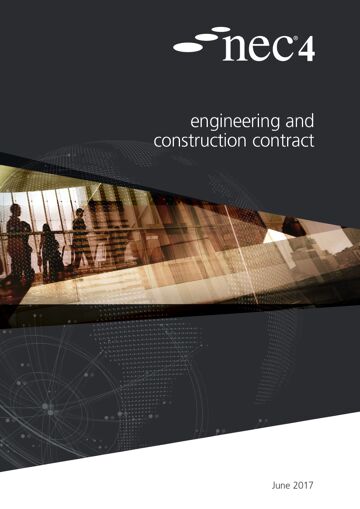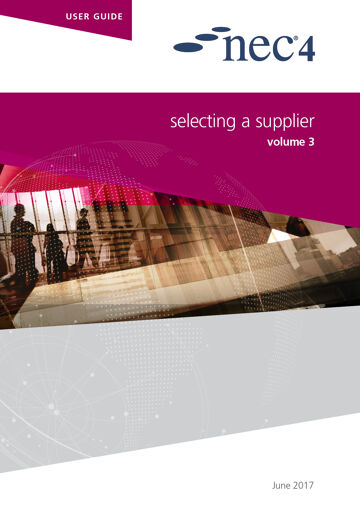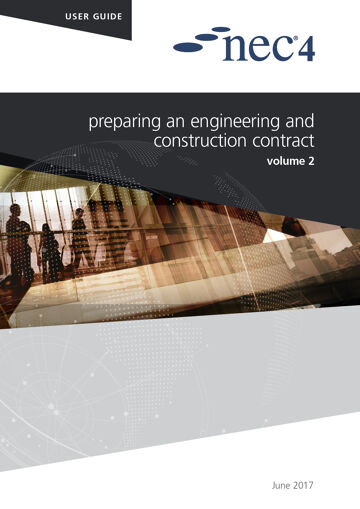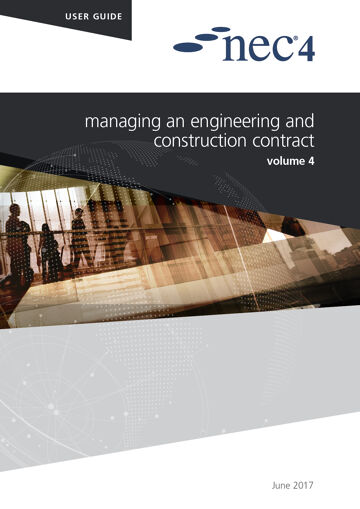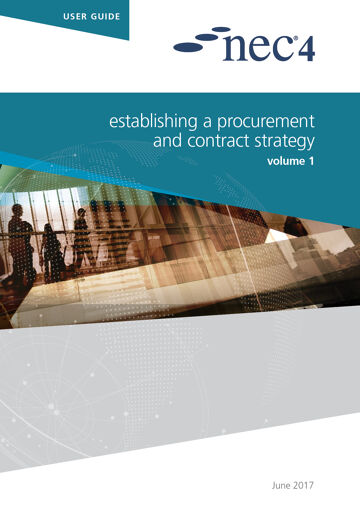NEC4 Foundation Certificate Programme (Australia)
The course is followed by a multiple choice assessment. Successful completion of the assessment (70% pass mark) gives the delegate an NEC4 Foundation Certificate.
Background
The NEC4 ECC has been developed for the appointment of a contractor for engineering and construction project work, including any level of design responsibility. It provides a modern method for clients, designers, contractors and project managers to work collaboratively to consistently achieve their objectives.
People will be motivated to play their part in collaborative management if it is in their commercial and professional interest to do so. Uncertainty about what is to be done and the corresponding risks and liabilities can lead to disputes and confrontation. The ECC clearly allocates risks, and the collaborative approach will reduce those risks and uncertainty for all the parties.
A successful NEC project is reliant upon:
-
A clear and well-structured brief including clear and unambiguous Contract Data and Scope in conjunction with the correct use of additional conditions of contract (Z Clauses)
-
A clear understanding of the key obligations and procedures within the contract including compensation events which provide an effective procedure for assessing and agreeing the time and cost effect of these events as they occur and in a timely manner.
Echoing good practice in each of these aspects will ensure that your NEC contract delivers the balance of flexibility and clarity which leads to successful outcomes.
Session 1: Overview of the NEC and the NEC4 ECC
This session will show how NEC contracts have helped transform industry behaviours and how ECC works alongside other contracts in the suite. It will also cover when the ECC should be used, and its relationship to its sub contract (Engineering and Construction Subcontract, ECS) and the short versions of those contracts.
Session 2: Using the ECC: the contract strategy
This session covers the contract strategy; an explanation of the main and secondary Options that can be chosen and the other contract documents that need to be produced. It will also outline the difference between defined and identified terms, their significance in the contract and the Contract Data and how they should be used.
Session 3: Contract documents including using a form of agreement
This session covers the constituent parts of an ECC, the function and purpose of Contract Data, Scope, Site Information and pricing document. It will also cover the status and relationship between the constituent parts of an ECC, using a form of agreement and how you can utilise the NEC support materials such as the User Guides
Session 4: Scope and Site Information
This session will show key things to consider including references within the contract clauses and how to incorporate specifications and health and safety information as well as show how to establish a structure including section headings and coding. It will also review the Scope provided by the Contractor for its design and the drafting process and checklist and the key things to consider including references within the contract clauses and review the drafting process and checklist.
Session 5: Pricing documents
This session will cover the Activity Schedule or Bill of Quantities and key things to consider including tendering issues.
Session 6: Relationship between documents
This session will review the hierarch or priority of documents and each part of the contract.
Session 7: General provisions of the ECC
This session will look at the general techniques that are used to manage the contract including mutual trust and co-operation, communications, the role of the Project Manager and Supervisor, and early warnings.
Session 8: Contractor’s main responsibilities
This session outlines the Contractor's main responsibilities cover how the works are defined, the Contractor’s design, key people, Key Dates and subcontracting.
Session 9: Time
This session looks at when the works start and finish, the importance of the programme and how the Accepted Programme is used and revised to help manage
Session 10: Quality management
This session clarifies how defective work is identified and managed throughout the programme and after Completion.
Session 11: Payment
This session covers how amounts for payments are calculated and how handling costs can vary with the main Options. It includes when payments should be made as well as determining Defined Cost, Disallowed Cost, the Schedule(s) of Cost Components and preparing the Project Manager’s certificate.
Session 12: Compensation events?
This session gives an overview of what compensation events are, how they vary with the Option chosen and how they should be managed to ensure neutral cost to the Contractor and transparency and fairness to the Client. The compensation event process is also worked through using a series of case studies, answering questions such as how do you notify a compensation event, can you use tendered amounts, what does a quotation look like and how is the compensation event shown on revised programmes and Activity Schedule/Bill of Quantities.
Session 13: Title, liabilities and insurance, termination and dispute resolution
This section will review how title passes between the Parties and the relevance of Working Areas. It also looks at the way the contract deals with liabilities and maintains a risk profile which complies with the overarching NEC principle of mutual trust. Finally, this session deals with the process of termination and the reasons why the termination process can be invoked, and also with the various dispute resolution procedures
Session 14: ECC in action
This is a series of case studies exploring some of the practical aspects of ECC in action.
Session 15: Summary and open forum
This course is designed for those preparing or working with the ECC form including:
- Procurement managers
- Project managers
- Contract managers
- Supervisors
- Quantity surveyors
- Consultants
- Contractors and their supply chain
It is designed for those with minimal experience with NEC contracts or the ECC form but can be beneficial to those wishing to recap their knowledge. It forms a strong foundation for those wishing to become NEC tutors or consultants and supports further study with NEC such as the NEC4 ECC Project Manager Accreditation.

